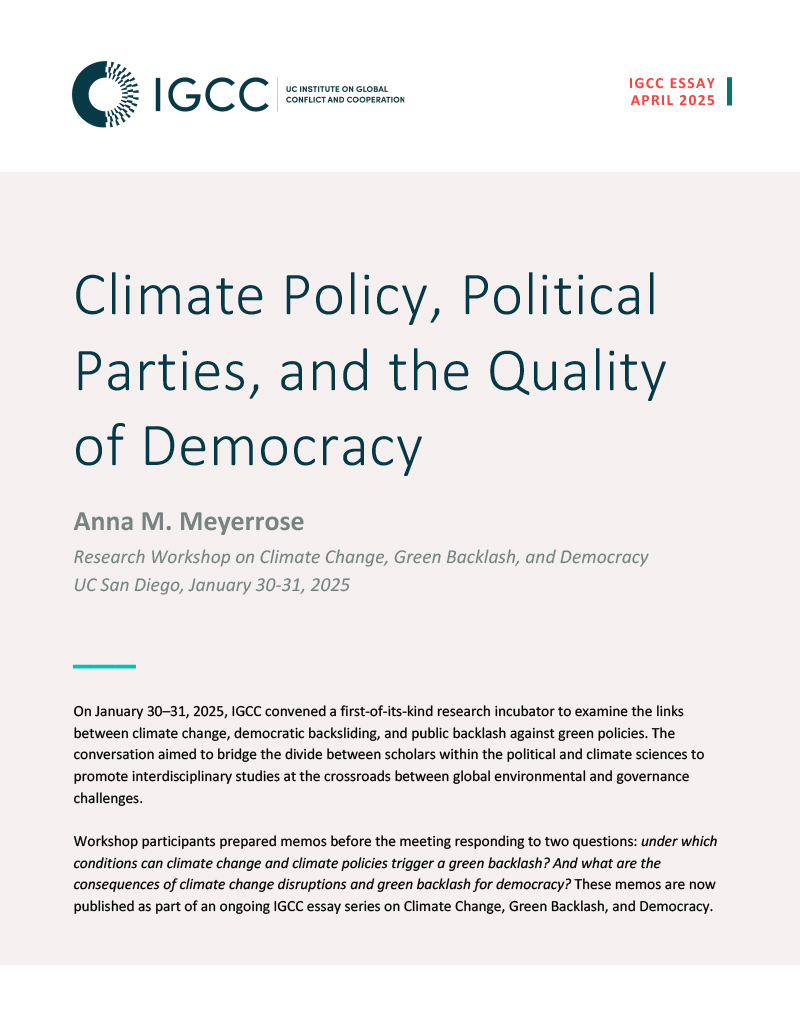Climate Policy, Political Parties, and the Quality of Democracy

In this essay—part of an IGCC series on Climate Change, Green Backlash, and Democracy—Anna Meyerrose, an assistant professor at Arizona State University, explores the connections between political parties—far-right populist and green parties in particular—and climate policy and the quality of democracy.
DownloadClimate change adds to the growing list of challenges confronting liberal democracies. Some evidence suggests that climate-related policies can lead to a green backlash among certain subsets of voters, creating perverse incentives for responsive politicians to abandon climate-friendly policies. But what effect does this backlash have on political parties?
In this essay, Anna Meyerrose, an assistant professor of politics and global studies at Arizona State University, outlines existing work on this topic, with particular attention to research on the role of far-right populist parties. These parties have, in Western democracies, traditionally been hostile to policies associated with climate change, and are at the forefront of democratic backsliding. She also reviews what is known about green parties and the role they may play in changing the environmental policies of mainstream parties. The rise of both green and far-right parties across Western democracies is playing out against a backdrop where traditional, mainstream parties are on the decline and party systems are realigning. Does the presence of a strong green party help to offset the negative effects of the far-right for liberal democracy? Can green parties serve as a viable alternative to mainstream political parties? Meyerrose charts a path forward for research at the intersection of climate policy, party politics, and the quality of democracy.
_______________________
On January 30–31, 2025, IGCC convened a first-of-its-kind research incubator to examine the links between climate change, democratic backsliding, and public backlash against green policies. The conversation aimed to bridge the divide between scholars within the political and climate sciences to promote interdisciplinary studies at the crossroads between global environmental and governance challenges. Workshop participants prepared memos before the meeting responding to two questions: under which conditions can climate change and climate policies trigger a green backlash? And what are the consequences of climate change disruptions and green backlash for democracy? These memos are now published as part of an ongoing IGCC essay series on Climate Change, Green Backlash, and Democracy.